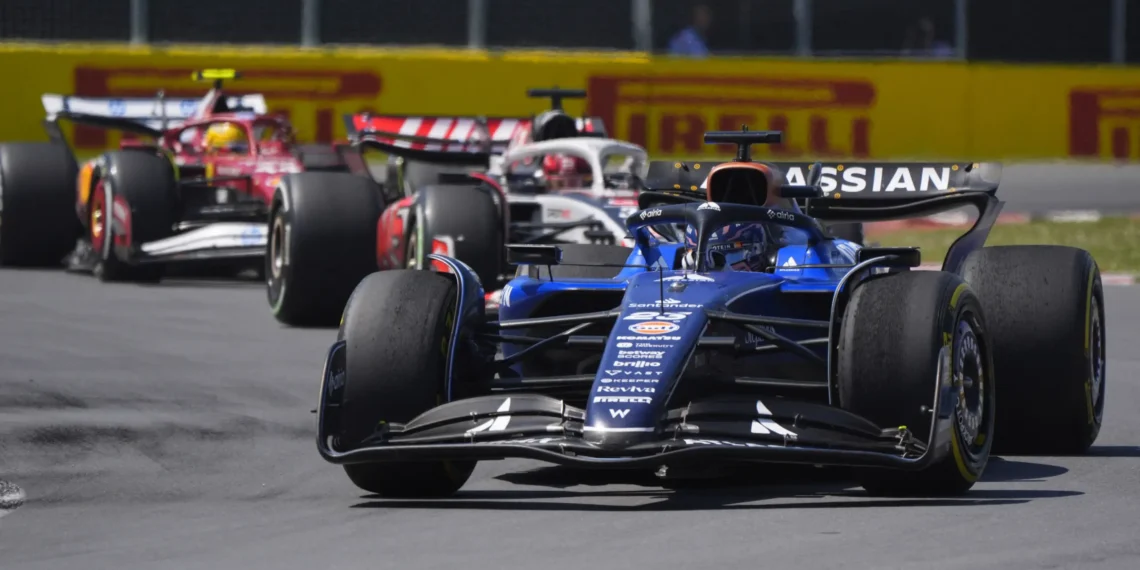Formula 1 Racing Under Fire: Controversial Tactics Spark Fears of ‘Contact Sport’ Transformation
The world of Formula 1 is currently embroiled in a heated debate surrounding the driving standards and tactics being employed by drivers on the track. The FIA’s recent decision to make public the driving standard guidelines has shed light on a controversial tactic that has been causing unrest among drivers and teams alike.
One of the main points of contention is a maneuver where drivers are forcing their rivals off the racing line by releasing the brake on corner entry, essentially claiming the right to the turn under the guise of the rules. This aggressive tactic has led to instances of cars being pushed onto the grass or forced to run wide, sparking concerns about the safety and fairness of the races.
Driver Alex Albon, who fell victim to this tactic during the Canadian Grand Prix, expressed his dissatisfaction with the current state of racing in Formula 1. He highlighted an incident at Turn 1 in the Spanish GP where he was forced off track by another driver using the same maneuver, resulting in a penalty for Albon.
The issue at the heart of the matter is the impact these strict adherence to rules and guidelines are having on the natural flow of racing. Drivers like Max Verstappen and Oliver Bearman have pointed out that the obsession with following the rules to the letter is making the racing feel artificial and scripted, taking away from the raw and instinctive nature of the sport.
Liam Lawson echoed these sentiments, emphasizing how the structured nature of the guidelines is inadvertently incentivizing drivers to find ways to exploit them for their benefit. This has led to a situation where drivers are more focused on navigating the rules than engaging in genuine wheel-to-wheel battles on the track.
Despite the challenges posed by finding a solution to this issue, some drivers are calling for a revamp of the stewarding system to allow for more consistent and nuanced decision-making during races. George Russell suggested the idea of having fully paid professional stewards with a consistent panel to ensure a more uniform approach to judging on-track incidents.
As Formula 1 grapples with the growing concerns over the direction of the sport and the impact of these controversial tactics, the need for a balanced and effective regulatory framework becomes more apparent. Finding the right balance between enforcing rules and allowing for genuine competition will be crucial in shaping the future of Formula 1 racing.









